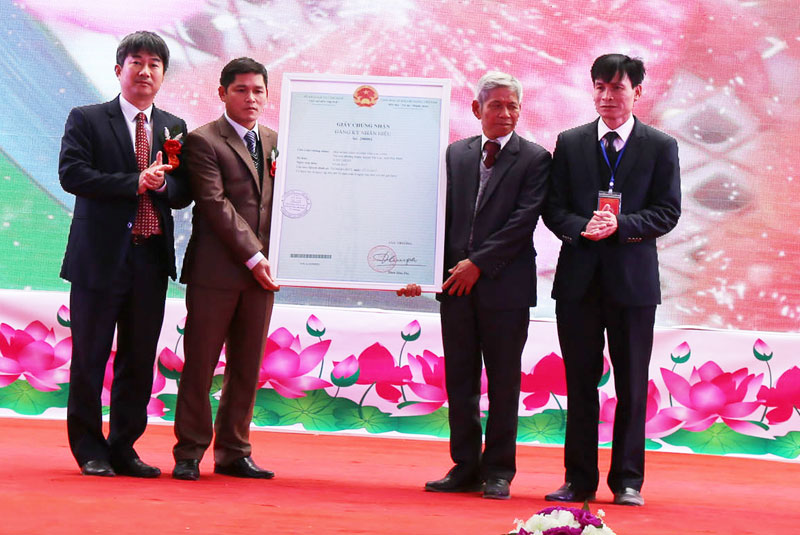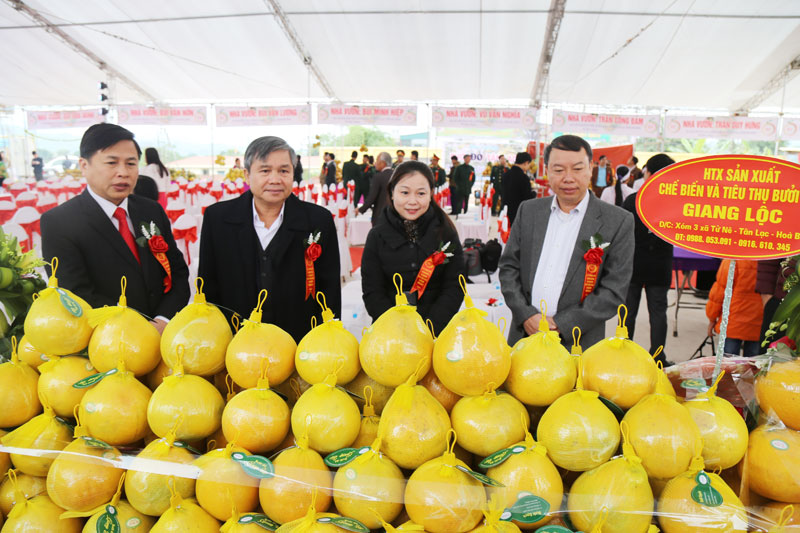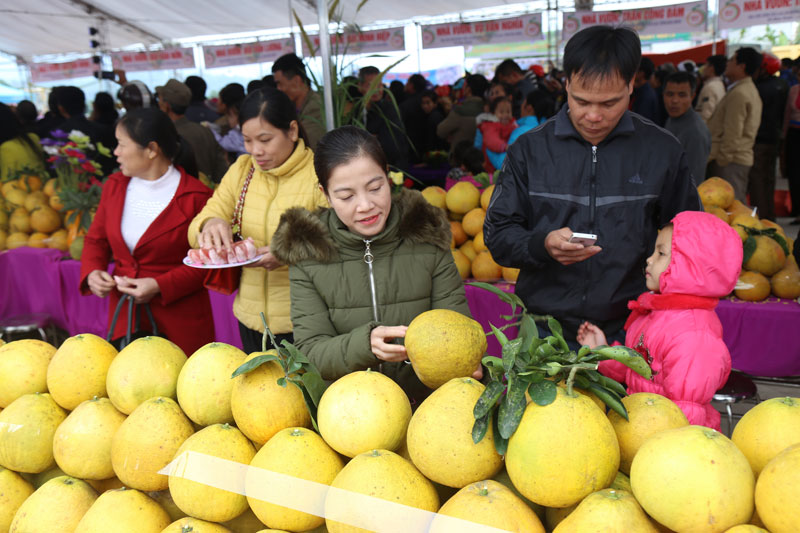



A representative of the National Office of Intellectual
Property of Vietnam presents a certificate on the protection of Tan Lac
red-flesh grapefruit collective mark.

Provincial and district leaders visit a booth displaying
red-flesh grapefruits.

This is an occasion for grapefruit farmers in Tan Lac to
advertise their specialty.
Since the district’s Party Committee issued
Resolution No. 10-NQ/HU, the area under red-flesh and green-skin grapefruit
cultivation in Tan Lac has increased rapidly, from 109.7ha in 2013 to 509.2ha
in 2015, 358.4ha larger than the target set in the resolution. That area
includes more than 300ha of newly planted grapefruit trees. The total area
reached 991.8ha in 2017, up 177.6 percent from 2015. Nearly 559ha of grapefruit
trees are from one to three years old, while 350ha have borne fruits.
Most of grapefruit trees are cultivated in the
communes located along National Highways 12B and 6. The farming area has
rapidly expanded in the communes of Dong Lai, Thanh Hoi, Tu Ne, Ngoc My, Quy
Hau, Man Duc, and Phong Phu. Red-flesh grapefruits have generated over an
income of 700 million VND (31,000 USD) in average per ha for local farmers.
Some households even gained more than 1 billion VND (44,300 USD) per ha.
To help this grapefruit specialty develop
sustainably, the district People’s Committee ordered specialised agencies to
coordinate with the plant seedling centre, the Xuan Mai centre for citrus tree
research and development, and some households to create gardens for farming and
trading grapefruit seedlings. Grapefruit trees have helped develop the local
economy, create jobs and reduce poverty sustainably.
Based on the production outcomes in Tan Lac
district, the provincial Hoa Binh People’s Committee approved a plan on
producing red-flesh grapefruits in the province for 2016-2020. It also
recognised the district’s red-flesh and green-skin grapefruit cultivation as typical
production model that should be expanded across the province.
The recognition of the Tan Lac red-flesh
grapefruit collective mark is a chance for the district to step up red-flesh
grapefruit farming, gradually build a brand for the product, and create a
driving force for agricultural restructuring. The district plans to increase
its grapefruit area to 1,200ha by 2020, which will be as a foundation for
building a brand and geographical indication for Tan Lac red-flesh
grapefruits./.